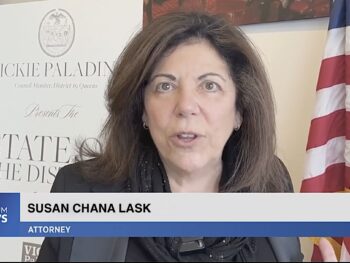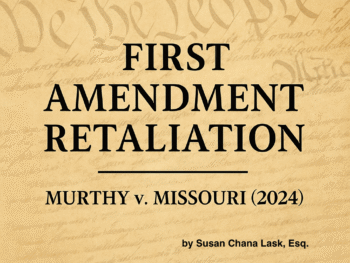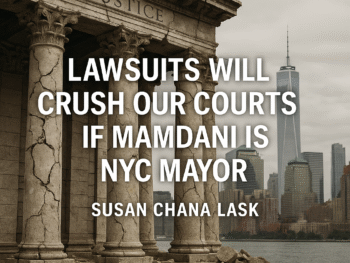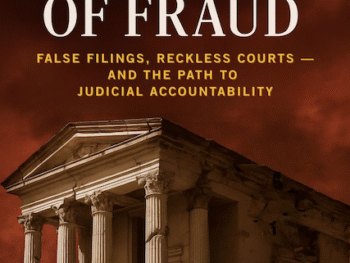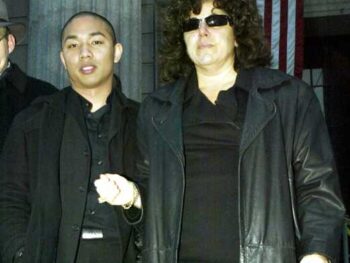
January 19, 2017
LGBT Bias Question Heads to Appeals Court in Manhattan
By Chris Opfer
A team of lawyers on Jan. 20 will urge an appeals court in New York to rule that federal sex discrimination law covers sexual orientation bias, asking one judge in particular to change his mind on the issue ( Christiansen v. Omnicom Group, Inc., 2d Cir., No. 16-748, oral argument 1/20/17 ).
Attorneys for Matthew Christiansen want the U.S. Court of Appeals for the Second Circuit to overturn a nearly 17-year-old decision finding that sexual orientation discrimination isn’t banned by Title VII of the 1964 Civil Rights Act. Robert Katzmann, one of the judges who reached that decision in 2000, is also on the three-member panel reviewing Christiansen’s lawsuit against Omnicom Group Inc.
The Second Circuit is the latest federal appeals court to take up the question. The Seventh and Eleventh circuits have yet to reach decisions since hearing oral arguments in separate cases in 2016.
A federal judge in New York in 2016 dismissed the creative director’s harassment claims against Omnicom, in which he alleged that former manager Joe Cianciotto taunted him relentlessly because Christiansen is gay. The judge said the earlier appeals court ruling made clear that the federal workplace bias law doesn’t expressly include sexual orientation discrimination but also urged Christiansen to appeal the case to the Second Circuit.
“It doesn’t take an act of Congress to fix this situation,” Susan Chana Lask, who is representing Christiansen, told Bloomberg BNA. “That’s why courts exist: to interpret legislation.”
The oral arguments are scheduled to take place hours before President-elect Donald Trump takes the oath of office. Lawyers told Bloomberg BNA they expect the Equal Employment Opportunity Commission, which filed an amicus brief in support of Christiansen, to continue to argue once Trump takes office that sexual orientation bias is banned under federal law.
Congress or the Courts?
Howard Rublin, a partner at Davis & Gilbert LLP who is representing Omnicom, didn’t immediately respond to Bloomberg BNA’s request for comment. Rick Ostrove of Leeds Brown Law PC, representing Cianciotto, also didn’t respond to Bloomberg BNA’s inquiries.
The company said in a briefing that the law in its current form simply doesn’t apply to sexual orientation discrimination allegations. Cianciotto argued in a separate brief that there’s no reason to overturn previous decisions–including the Second Circuit’s in Simonton v. Runyon, 232 F.3d 33 (2d Cir. 2000)–bolstering that position.
“It is disgraceful that Congress has not passed a statute protecting against discrimination based on sexual orientation,” Cianciotto’s lawyers argued. “But, Congress has not done so. Sexual orientation is not covered under Title VII, that is the state of the law, and this Court should not legislate from the bench.”
Christiansen, for his part, pointed to the U.S. Supreme Court’s shifting position on LGBT issues to argue that the sex discrimination ban should be read broadly. He emphasized in particular the justices’ decisions to strike down federal and state bans on same-sex marriage in United States v. Windsor, 133 S. Ct. 2675 (U.S. 2013), and Obergefell v. Hodges, 135 S. Ct. 2584 (U.S. 2015).
Those cases are “meaningless” if same-sex couples are left in the “most untenable position known as ‘married on Sunday, fired on Monday,’” Christiansen argued. “Meaning, under Windsorthey can marry on Sunday and then under Simonton they can be fired on Monday because their same sex marriage gets no Title VII protection.”
Supreme Court Could Weigh In
The issue is widely expected to eventually end up in front of the Supreme Court. The justices may be called on to consider one or more of the related cases currently winding their way through the appellate courts.
“They are the same exact cases with the same exact questions,” Lask told Bloomberg BNA. “It’s just a matter of who goes first.”
The Seventh Circuit rejected arguments similar to Christiansen’s in 2016, when a three-judge panel said sexual orientation bias claims aren’t authorized under Title VII. That case has since been reheard by the full 11-member appeals court, which has yet to issue a ruling.
Meanwhile, the Eleventh Circuit in December heard arguments in a case in which a hospital security guard in Georgia alleged she was fired because she’s gay and has a traditionally male appearance. A federal district court originally dismissed the complaint.
What Will Trump Do?
A group of 128 Congressional Democrats, Lambda Legal and the American Civil Liberties Union are among those that have filed amicus briefs in support of Christiansen’s case. Log Cabin Republicans President Gregory Angelo told Bloomberg BNA he supports that position but still wants to see protections for LGBT workers expressly written into the law.
“Interpretations are just that: interpretations,” Angelo said. “They can by definition be changed on a whim.” The Log Cabin Republicans declined to endorse Trump over a variety of concerns, including about what he’ll do with an executive order that bans federal contractors from discriminating against workers based on sexual orientation or gender identity. Angelo said he’s been “in regular communication with the Trump team” and is “encouraged” by those discussions.
Lask and Reed Russell, who served as EEOC legal counsel in the George W. Bush administration, told Bloomberg BNA they don’t expect the agency to suddenly change its tune on the issue under Trump.
“I don’t think President-elect Trump cares about it,” Russell said when asked about concerns that the new White House could turn back protections for LGBT workers. “It’s not worth the candle, especially if you look at the landscape of the courts. It seems like there are other hills to die on.”
To contact the reporter on this story: Chris Opfer in Washington at copfer@bna.com. To contact the editors responsible for this story: Peggy Aulino at maulino@bna.com; Terence Hyland at thyland@bna.com Copyright © 2017 The Bureau of National Affairs, Inc. All Rights Reserved.

